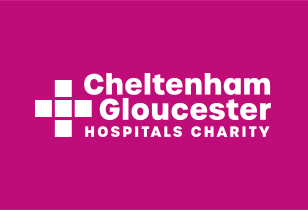Stroke Medicine
Woodmancote
0300 422 4475
0300 422 4476
Our multi-disciplinary stroke care team treats patients who have had strokes.
What is a stroke?
A stroke is damage to the brain caused by an interruption to its blood supply or rupture of a blood vessel causing leakage of blood into the brain.
It is a common cause of brain injury and can vary in severity from causing very mild symptoms, varying degrees of disability and even death. It is the brain equivalent of a heart attack.
Read more about all aspects of strokes and stroke care on NHS Choices.
Our services
Research has shown that stroke patients treated on a stroke unit do better than those treated on normal medical wards. Patients are more likely to survive the stroke, have fewer disabilities and be able to live independently if treated on a stroke unit.
Our stroke wards are based at the following hospital locations:
- Hyper Acute Stroke Unit (HASU) on Hatherley Ward at Cheltenham General Hospital 0300 422 3617
- Woodmancote Ward at Cheltenham General Hospital 0300 422 4406
The Stroke Team will aim to medically stabilise your condition and identify any problems by carrying out a series of multi-disciplinary assessments.
Stroke Rehabilitation
The Specialist Stroke Rehabilitation Unit, located within Peak Ward at Vale Community Hospital, bridges the gap in post-stroke care in Gloucestershire, giving people who have suffered a stroke the best opportunity to recover and adapt.
Stroke Early Supported Discharge Team
The Stroke Early Supported Discharge Team are a team of speech and language therapists, occupational therapists, physiotherapists, specialist nurses and rehabilitation assistants with stroke specialist skills and knowledge.
Rest Period with no visiting on HASU and Woodmancote CGH between 13:30 – 15:00 daily.
We politely ask for no visitors during this time to support our stroke inpatients' recovery and fatigue; exceptions are to be discussed with the nurse in charge/Ward manager.
The team
Patients who have had strokes are treated by a multi-disciplinary team which specialises in stroke care. The core team consists of doctors, nurses, physiotherapists, occupational therapists, speech and language therapists, dietitians, therapy assistants, psychologists and social workers.
TIAs (Transient Ischaemic Attacks)
Transient Ischaemic Attacks (TIA) are also known as ' Mini Strokes'. They come on suddenly and produce stroke-like symptoms which last for less than 24 hours. Most TIAs resolve within 1 hour and people make a full recovery. Transient ischaemic attacks affect 35 people per 100,000 of the population each year and are associated with a very high risk of stroke in the first month of the event and up to one year afterwards. Read more on NHS Choices. TIAs are treated in outpatient clinics.
Contact our TIA Coordinator – 0300 422 6321.
Useful links and contacts:
Dr Hellier's secretary: 0300 422 3207
TIA co-ordinator: 0300 422 6321
